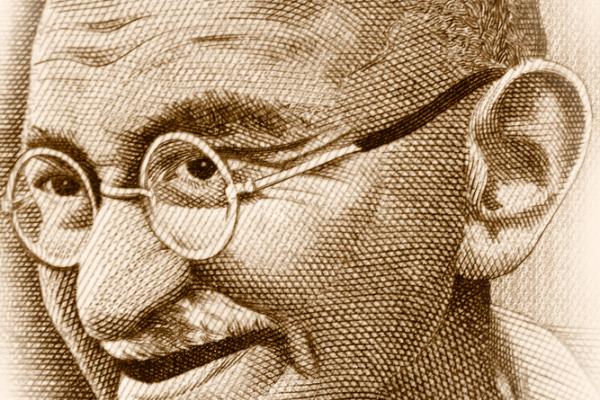MARTIN LUTHER KING JR. once said that the greatest Christian of the 20th century was not a member of the church. He was referring to Mohandas Gandhi. A remarkable number of King’s fundamental beliefs—the use of active nonviolence as a tool of social reform, the commitment to loving one’s enemies—can be traced back to the influence of Gandhi, which means that one of the defining figures of 20th century American Christianity was profoundly shaped by the example of an Indian Hindu. As King said in 1958 of the civil rights movement, “Christ furnished the spirit and motivation while Gandhi furnished the method.”
But what of Gandhi’s influences? How did a skinny, middle-class, mid-caste Indian, so scared of public speaking as a student that a classmate had to read his speeches aloud for him, come to lead one of the great liberation struggles of the past century? A new book by Arvind Sharma, professor of comparative religions at McGill University, makes the case that the source of Gandhi’s strength was his spirituality. And while the heart of Gandhi’s faith was Hindu, as King’s was Baptist, the influences were remarkably diverse.
Pointing out that most of the biographies of Gandhi really tell the story of Mohandas Karamchand (the name he was given by his family), not Mahatma (a title that means “great soul” and is given to saints in India), Sharma’s book Gandhi: A Spiritual Biography sets out to give an account of the Mahatma. Sharma quotes Gandhi directly on the importance of highlighting the dimension of spirituality in any attempt to understand him: “What I want to achieve—what I have been striving and pining to achieve these 30 years—is self-realization, to see God face to face, to attain moksha [the Hindu term for liberation]. I live and move and have my being in pursuit of this goal.”
Read the Full Article

